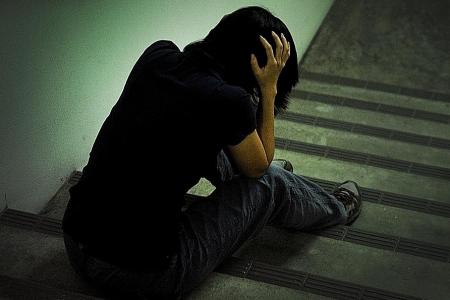
Woman with schizophrenia uses experience to help others
She used to think she had superpowers to talk to the TV
by YIP WAI YEEWhen Ms Valerie Liu was in her early 20s, she thought she was a deity with superpowers that allowed her to talk to the radio and her television set.
The voices in her head kept telling her that her neighbours were watching her and conspiring with her mother against her.
She was diagnosed with schizophrenia in 2007.
Today, the 38-year-old rarely hears these voices, thanks to the right medication and plenty of counselling and support from health professionals as well as her mother, who is her main caregiver.
World Schizophrenia Day was observed on May 24, as it is every year, to raise awareness for patients like Ms Liu, for whom more help is now available.
"Compared with a decade ago, things have got so much better. In my work, I talk to others, as someone who has lived through the experience of having schizophrenia", said Ms Liu, who is now an executive and peer support specialist at the Singapore Association for Mental Health (SAMH).
She coordinates talks and workshops to help others dealing with mental health issues.
"I really understand what they're going through. There was no such person to help me in my journey to recovery when I needed it back then," she said.
Dr Charmaine Tang, consultant and head of the Early Psychosis Intervention Programme at the Institute of Mental Health, said it is heartening to see more being done to address the stigma surrounding mental illness in recent years.
This includes the "emergence of a peer-led recovery-oriented movement", which refers to having people with shared experiences help others with their mental health recovery efforts.
Those suffering from schizophrenia interpret reality abnormally and experience hallucinations, delusions or disordered thinking that impairs daily functioning.
About one in 100 people globally will develop schizophrenia in their lifetime, said Dr Tang.
Ms Liu finds working full-time helps with her condition.
"Being employed gives me a sense of confidence and allows me to build relationships with people," she said.
She has also become better at managing the voices she still hears occasionally.
"I know now that the voices are not real," she told The Straits Times in a video call.
Mr Jackson Ee, who has worked as a senior security officer for the past five years, is also open about sharing his experience of being diagnosed with schizophrenia.
He said: "I believe that I can be an agent of change through my interaction with others and by sharing my recovery journey. I hope to inspire and motivate others who are still struggling in their journey of recovery."
In 2018, the National Council of Social Service launched Beyond The Label, a campaign to promote greater social inclusion of people recovering from mental health conditions and to correct misconceptions surrounding them.
In January this year, the Tripartite Alliance for Fair and Progressive Employment Practices also amended its guidelines, advising employers to remove all declarations on mental health conditions from job application forms.
These are all "positive steps" for building a more inclusive society for people with mental health conditions, including schizophrenia, said Dr Tang.
Helplines
National Care Hotline: 1800-202-6868
Institute of Mental Health's Mental Health Helpline: 6389-2222
Singapore Association for Mental Health: 1800-283-7019
Samaritans of Singapore: 1800-221-4444
Silver Ribbon Singapore: 6385-3714
Fei Yue's Online Counselling Service:www.eC2.sg
Tinkle Friend (for primary school children): 1800-274-4788